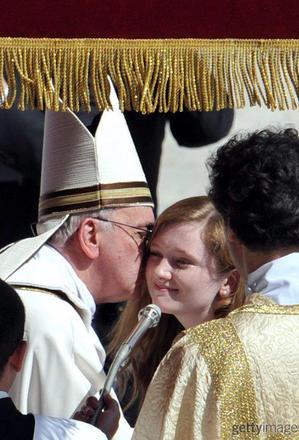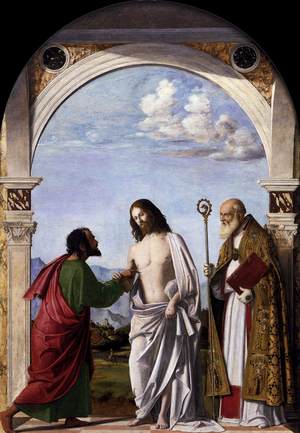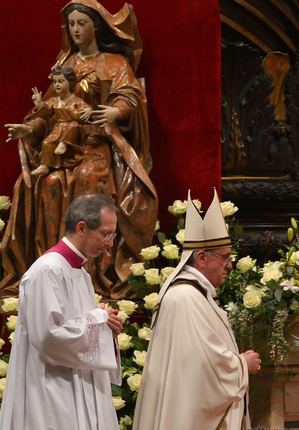At the Sacrifice of the Mass in St Peter's Square, Pope Francis also celebrated the Rite of Confirmation with 44 people from around the world. As we approach Pentecost, this excerpt from his short homily is very instructive. Pay attention. Don't forget to daily ask, no beg, for the Holy Spirit to have a special grace to embrace the day. May the Spirit be with these 44 newly confirmed in the Faith, indeed, all those around the world who are receiving the sacrament of Confirmation these days.

This is the work of the Holy Spirit: he brings us the new things of God. He comes to us and makes all things new; he changes us. The Spirit changes us! And Saint John's vision reminds us that all of us are journeying towards the heavenly Jerusalem, the ultimate newness which awaits us and all reality, the happy day when we will see the Lord's face - that marvelous face, the most beautiful face of the Lord Jesus - and be with him for ever, in his love.
You see, the new things of God are not like the novelties of this world, all of which are temporary; they come and go, and we keep looking for more. The new things which God gives to our lives are lasting, not only in the future, when we will be with him, but today as well. God is even now making all things new; the Holy Spirit is truly transforming us, and through us he also wants to transform the world in which we live. Let us open the doors to the Spirit, let ourselves be guided by him, and allow God's constant help to make us new men and women, inspired by the love of God which the Holy Spirit bestows on us! How beautiful it would be if each of you, every evening, could say: Today at school, at home, at work, guided by God, I showed a sign of love towards one of my friends, my parents, an older person!



